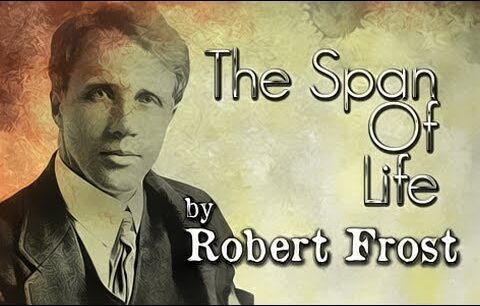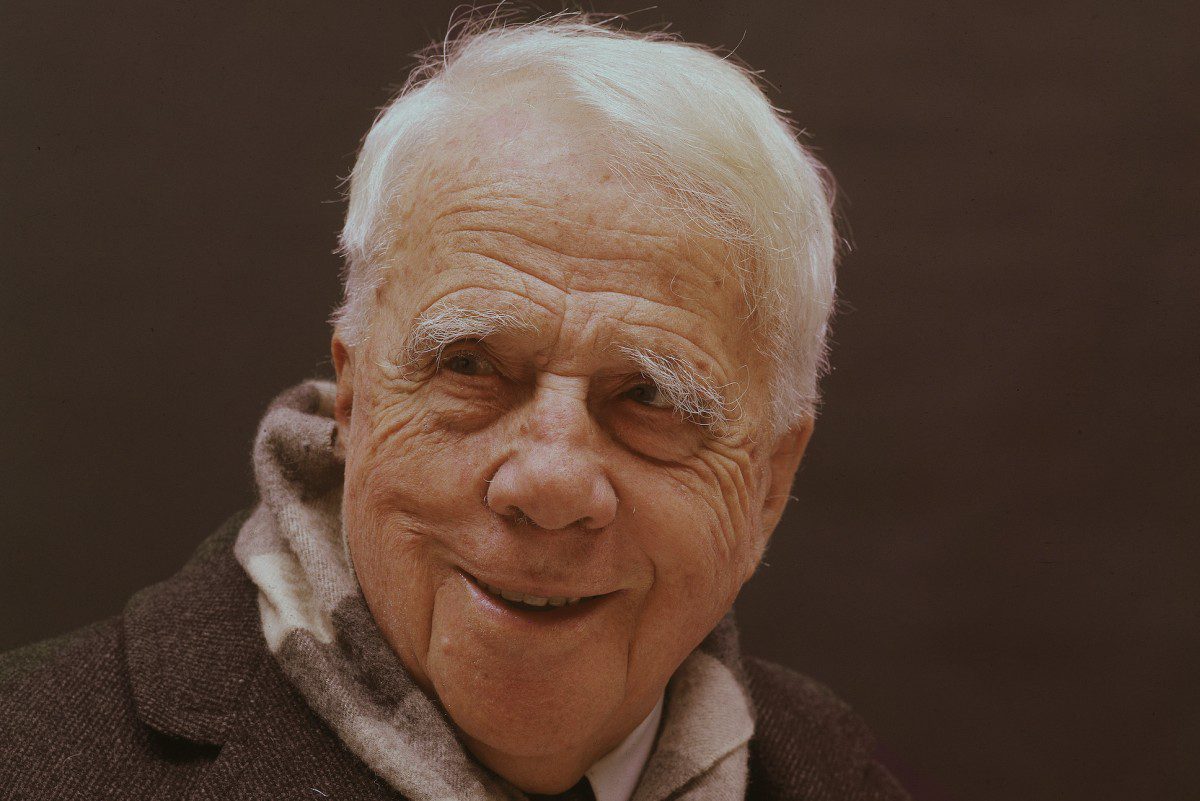Here’s a very short poem by Frost (1874–1963), probably America’s most famous poet.
The Span of Life
The old dog barks backward without getting up.
I can remember when he was a pup.
Read the poem aloud once or twice, physically experiencing Frost’s “performance in words.” The most immediately obvious part of the performance is
that Frost has written lines that rhyme. No two readers will read the lines in exactly the same way, but it is safe to say that in reading the first line most readers will put a fairly heavy stress on as many as seven or even eight syllables, whereas in reading the second line they probably will stress only three or four:
The óld dóg bárks backward withoút gétting úp.
Í can remémber when hé was a púp.
Notice that the first line is harder to say than the second line, which more or less rolls off the tongue.Why? Because in the first line we must pause between “old”and “dog,” between “backward” and “without,” and between “without” and “getting”— and in fact between “back”and “ward.”
And so we can say that the form (a relatively effortful hard-to-speak line followed by an easy bouncy line) is part of the content: first, a description with pauses and relatively heavy stresses of a dog that no longer has the energy or the strength to leap up, and second, a line that in a rather jingling way reports a memory of the dog as a puppy. The language, then, is highly patterned.Take a moment to read the lines again, and to enjoy the rhyme; rhyme—the repetition of a sound—is also a pattern. One can easily see what Frost meant when he said that a poem is a performance in words. The thing looks easy enough, but we know that it takes skill to make words behave properly—that is, to get the right words into the right places. Frost went into the lions’ cage, did his act, and came out unharmed.
Significance
We’ve been talking about Frost’s skill in handling words, but we have said only a little about what Frost is saying. One of the things that literature does is to make us see—hear, feel, love—what the author thinks is a valuable part of the experience of living. A thousand years ago a Japanese writer,Lady Murasaki,made this point when she had one of the characters in her book talk about what motivates an author:
Again and again something in one’s own life or in that around one will
seem so important that one cannot bear to let it pass into oblivion.
There must never come a time, the writer feels, when people do not know about this.
We can probably agree with Lady Murasaki that writers of literature try to get at something important in their experiences, emotions, or visions, and try to make the reader experience the importance. And so a writer shows us what the span of life is like, or (for instance) what it is like to be in love (plenty of room for comedy as well as tragedy here), or what it is like to be an immigrant worrying whether his or her baby will he accepted as an American.
Thinking further about Frost’s poem, we notice something else about the form.The first line is about a dog, but the second line is about a dog and a human being (“I can remember”). The speaker must be getting on, too. And although nothing is said about the dog as a symbol of human life, surely the reader, prompted by the title of the poem, makes a connection between the lifespan of a dog and that of a human being. Part of what makes the poem effective is that this point is not stated explicitly, not belabored. Readers have the pleasure of making the connection for themselves—under Frost’s careful guidance.
Everyone knows that puppies are frisky and that old dogs are not—though perhaps not until we encountered this poem did we think twice about the fact that “the old dog barks backward without getting up.”Or let’s put it this way:
• Many people may have noticed this behavior, but
• perhaps only Frost thought (to use Lady Murasaki’s words) “There must never come a time . . . when people do not know about this.”And fortunately for all of us, Frost had the ability to put his perception into memorable words.
Part of what makes Frost’s performance in words especially memorable is the relationship between the two lines. Neither line in itself is anything very special, but because of the counterpoint the whole is more than the sum of the parts. Skill in handling language, obviously, is indispensable if the writer is to produce literature. A person may know a great deal about dogs and may be a great lover of dogs, but knowledge and love are not enough equipment to write even a two-line poem about a dog (or the span of life, or both). Poems, like other kinds of literature, are produced by people who know how to delight us with verbal performances.
We can easily see that Robert Frost’s “The Span of Life” is a work of literature rather than mere versification if we contrast it with another short work in rhyme:
Thirty days hath September,
April, June, and November;
All the rest have thirty-one
Excepting February alone,
Which has twenty-eight in fine,
Till leap year gives it twenty-nine.
This information is important, but it is only information. The lines rhyme, giving the work some form, but there is nothing very interesting about it, nothing insightful. (Perhaps you will want to take issue with this opinion.) The verse is true and therefore useful; it is valuable but it is not of compelling interest, probably because it only tells us facts rather than presents human experience.
We all remember “Thirty days” but the lines offer neither the pleasure of an insight nor the pleasure of an interesting tune.


